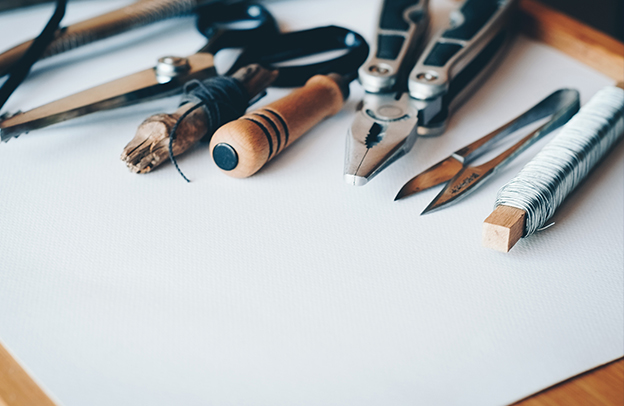Soft Skills vs Hard Skills – Basics Of Soft Skills

The difference between hard and soft skills is that hard skills are job-related competencies and abilities, while soft skills are personal qualities and traits that impact how you work. Hard skill sets are often transferable to other occupations, whereas just about any occupation usually requires soft skills.
Want to learn about Business Mindset and Content Creation Strategy? Then, AClasses Content Academy.
What you will learn in this series
In this article series on Soft Skills, we will cover such discussions as:
- How To Develop Your Soft Skills,
- Best Soft Skills To Develop Today,
- Soft Skills Vs Hard Skill,
- The Importance Of Soft Skills Today.
Soft Skill vs Hard Skills
Now, by hard skills we are actually referring to what you have studied in school, your kind of degree or other academic qualification like:
- Sales,
- Business analysis,
- Proficiency in foreign languages,
- Surgical skill,
- Computer Coding,
- Accounting,
- Proofreading,
- Cash flow management and many more.
Whereas, soft skills are the skills we usually pick up throughout our lives and working experiences including:
- Communication,
- Creativity,
- Collaboration,
- Persuasion,
- Organization,
- Teamwork,
- Flexibility,
- Empathy and many much more.
Whether you are referring to the examples of soft skills or hard skills, bear in mind that there are as many as you can imagine, because they literary cover all the different professions and industries and several types within a single industry or profession.
In the first article in this series, (The Basics Of Soft Skill: Beginner’s Guide) I mentioned the fact that all of us do have the basics of soft skills, beginning from our childhood.
Somehow, the custodians of our societies, whether you are talking of Africa, Asia, Europe, or others know that we are going to need these valuable skills to navigate our ways throughout our life. That is why the skills were carefully embedded in our different cultures, irrespective of where we are coming from.
The fundamental principles we are here studying as soft skills are not new at all. They have been part of us for thousands of years. Never forget that.
Now, hard skills or our core training in schools provide us with the backbone of our operations in workplaces and our private and professional life. By that I mean, if you were in the position to award a contract, you will never hire a person to design the main bridge in your city if such a person only knows about the construction of bridges in some random places. No one does that.
If you need a doctor to perform any serious surgical operation on you, you will never allow anyone without a certificate, or the hard skills for the job. That should be a given.
So, the acquisition of hard skills or our primary training is fundamental and that can never be overstressed. With that said, how do we blend both hard skills and soft skills for better results in our workplaces and professional lives? Let’s find out.
Don’t know how to develop your soft? Check out the following article on the series: How To Develop Your Soft Skills.
You need both soft skills and hard skills
Soft skills are often overlooked, but they have a huge impact on your career. A good number of employers now require applicants to provide evidence that they have these skills. To be successful in your job search, you will need to demonstrate evidence of soft skills in your resume and/or cover letter.
In the first article series, I stated that you do need both soft and hard skills. So, this article is not a question of choosing one over the other. It’s like your mouth and nose or eyes and ears. You can’t simply pick one over the other.
Can you make that kind of choice? So, you need both of them. Yes, you need both your soft skills and hard skill to remain in the competition.
Hard skills are teachable and measurable abilities, such as mathematics or the ability to use a computer program. Soft skills on the other hand are sets of almost intangible competence you need to do your job better, especially in today’s service-based economy, like communication skills and the ability to better engage with other people. Learn about the basics of Soft Skills.
These are not sets of skills that are opposing to one another. Instead, they are complementary to each other and must remain so for more efficiency and better results.
I often see people making this terrible mistake or do not understand the difference between soft and hard skills.
For that reason, this article is going to help us clarify the difference. And that clarification is going to help you better understand this concept so you can work more concretely to boost your skills.
Blend your hard skills with your soft skills
As stated earlier in this article, my intention here is not to pitch soft skills vs hard skills, like one should be chosen over the other. Even at the risk of sounding like an Old Testament prophet, you need both hard skills and soft skills. They need to work together for excellent results in your business, personal or professional life.
In one interesting article, “Blending Hard and Soft Skills to Create a Passion-Driven Career” published at GettingSmart.com as far back as 2016, the guest writer, Emily Gover stated, making personal reference to how she played by the books.
She earned her bachelor’s degree in four years, went straight to graduate school, and earned her master’s in Information & Library Science at 23 years of age.
A good takeaway from her writing is that the hard skills you earn will always serve you even when you change to other industries that require your previous experience. You can always count on your old experiences and blend your hard and soft skills.
“All different fields and industries,” she added in the article, “hire for multifaceted positions, which can make for an ideal way to find work that aligns with your passions. What’s more, for these roles people come from all walks of life. I have colleagues in the field who have backgrounds in QA, music, life sciences, art history, hospital administration, political science, marketing, and anthropology.”
To read the full article, go to GettingSmart.com and type “Blending Hard and Soft Skills to Create a Passion-Driven Career”. I am positive that you will enjoy it.
Now, the good thing about blending hard and soft skills or their development is that some of the same tools that are used to train for hard skills can also be modified for the development of soft skills. Nothing is a waste here. It’s like one hand helping another and the other way around.
For your maximum benefits, it will serve you well, if you learn how to blend your hard skills with soft skills because they are both working together to help you achieve your result.
Should you really consider developing your soft skills?
I think the answer should automatically be “yes”. Otherwise, what we are discussing here might not really be serving you. But I know it’s serving you. You are benefiting from it and that is my intention. That is why I am spending my time and energy putting (this article and AClasses Content Academy) together for your good.
You see, in this highly competitive service-based economy, technical or hard skills are no longer enough for workers to compete and produce results that will make the company stand out in the market. Across industries, soft skills have now become of supreme importance. It’s enough for you to look around and you can confirm that for yourself.
“A multiple case study,” said Susan Dean, Walden University in Minneapolis “design through the lens of emotional intelligence formed the basis of the research study.”
In her research paper, which focuses on identifying successful soft skills training strategies in the logistics industry, she added that soft skills can be used to help disadvantaged individuals who are unemployed or living in poverty.
In another study, it was indicated that one of the main reasons for low employability among graduates is the lack of mastering soft skills.
Employability means nothing more than your ability to get and keep a fulfilling job. And how do you get and keep a fulfilling job if you do not possess the set of essential skills and behaviors that are necessary for today’s workplaces?
You see, regardless of the covide19 pandemic and the havoc it has done to different industries, many people who did not retain themselves despite the different warnings that they should do so were destined to lose their jobs. That is the situation, with mathematical certainty.
Now, by retraining yourself according to the new demands of this automated economy, say, you have even lost your job and while looking for another one you have acquired some valuable skills, you can always find yourself back to work, and maybe do a better job than the ones you were doing before.
Your key takeaways Soft Skills vs Hard Skills
You might not think of these soft skills as important, but they impact your career. Many employers know this and are now looking for evidence that you have these skills.
Hard skills are necessary to complete work, whereas soft skills are qualities related to how you work. Hard skills will often apply to one specific career, unlike soft skills which can often be transferred across careers, as they constitute qualities.
For your own good, you should really consider developing your Soft Skills, starting today because you need then to claim your position in today’s marketplace and even for your private and professional life.
If you find any value in this post, share also with your friends who might need it. AClasses Content Academy if you want to learn about Business Mindset and Content Creation Strategy.





